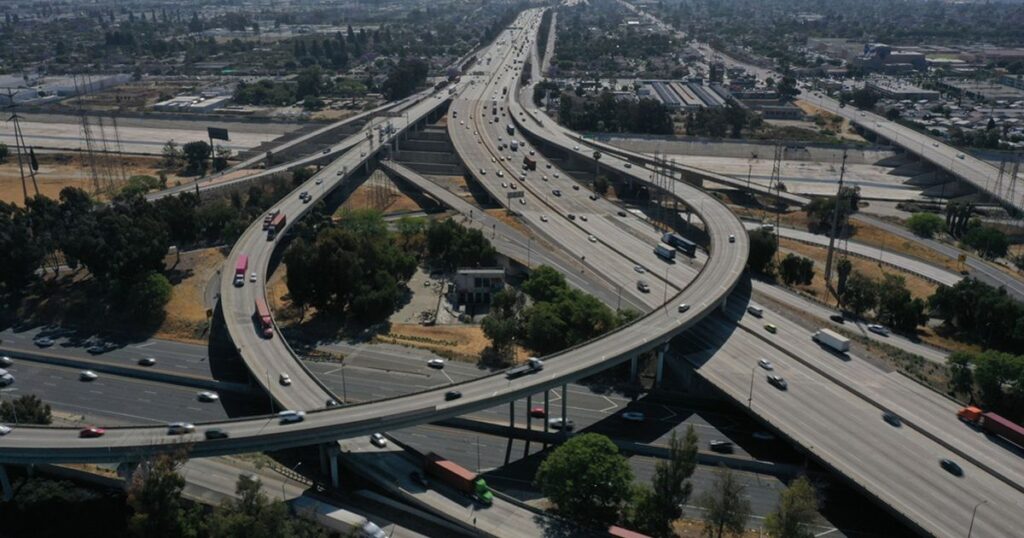Washington, D.C. The National Highway Traffic Safety Administration in the United States reinstated a sharp increase in penalties on Sunday against automakers whose vehicles do not meet fuel economy standards for model years 2019 and beyond.
Tesla Inc. benefited from the decision, which could cost other automakers hundreds of millions of dollars or more.
Confirming an earlier report by Reuters, the NHTSA stated that the decision “increases manufacturers’ accountability for violating the nation’s fuel economy standards” and that the increased penalty “incentivizes manufacturers to improve fuel economy.”
In the final days of President Donald Trump’s presidency in January 2021, he delayed a 2016 regulation that more than doubled penalties for automakers that failed to meet Corporate Average Fuel Economy (CAFE) standards beginning with the 2019 model year.
The NHTSA’s final rule, which takes effect 60 days after publication, reinstated the increased penalties for the 2022 model year and increased them further. While the issue was being investigated, the agency did not collect penalties for the 2019 to 2021 model years, which are now being challenged in court.
The final rule was signed by NHTSA Administrator Steven Cliff on Thursday, ahead of its formal publication.
For model years 2019 to 2021, the penalty is $14, up from $5.50, per 0.1 mile per gallon that new vehicles fall short of required fuel economy standards, multiplied by the number of noncompliant vehicles sold. This increases to $15 for the 2022 model year.
In 2016, automakers protested the penalty increase, claiming it would increase industry costs by at least $1 billion per year. The decision is expected to cost Chrysler parent Stellantis up to $572 million, according to the company’s previous estimates, while increasing the value of Tesla’s compliance credits.
Automobile manufacturers whose vehicles achieve greater fuel economy than required can sell credits to manufacturers whose vehicles do not meet CAFE standards.
The increased penalties were scheduled to begin with the 2019 model year under President Barack Obama, but the Trump administration delayed their implementation until the 2022 model year in response to a court decision.
The NHTSA estimated that automakers would owe $294 million under the new rate for the 2019 model year, up from $115.4 million under the previous rate.
According to the NHTSA, automakers who made plans for 2019 through 2021 “under the mistaken belief that penalties would not increase” did so at their own risk.
The head of a trade group representing nearly all major automakers except Tesla stated Sunday that it would be a “better outcome” if the penalties were “invested in electric vehicles, batteries, and charging infrastructure” rather than “vanishing into the Treasury’s general fund.”
NHTSA proposed in August to increase CAFE standards by 8% annually from 2024 to 2026, reversing a Trump-era regulation that rolled back higher standards beginning with the 2021 model year. This week, the NHTSA is expected to issue its final CAFE standards through 2026.
Stellantis said on Sunday that it would “like to work with the administration and Congress to allow the agencies to use the proceeds from penalties to bolster investments in the technologies and infrastructure necessary to accelerate the growth of the electric vehicle market in the United States.”
Tesla did not respond to a request for comment immediately.
In 2015, Congress directed federal agencies to adjust civil penalties for inflation. Fuel economy fines in the United States have lost 75% of their original value, increasing only once since 1975, from $5 to $5.50 in 1997.
